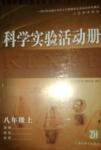3.When Sara and Nathan Jones were training to become foster parents(养父母),their son,Noah,learned a tough thing or two about foster care.For instance,nearly 600 local foster kids changed families every year,and they carried their belongings from one home to the next in black garbage bags.
Noah,then ten,couldn't imagine putting his clothes,favorite toy,and soccer ball into a rubbish bag and dragging it to a new house in the middle of the night."Packing kids'belongings into rubbish bags is like telling them that their stuff has no worth,"says Noah.
So with help from his parents and younger sisters,Macy,then nine,and Molly,then seven,Noah began to collect suitcases and duffel bags from friends and extended family.He then sent letters to churches and put ads in local newspapers and on radio stations asking for donations.Within a few months,the family was collecting about 500 bags a week,which they stored briefly in their spare bathroom and downstairs hallway before giving them to foster care caseworkers at the Department for Community Based Services.
In addition to suitcases,Noah now provides foster kids with backpacks containing shampoo,soap,a journal,and a toy-all donated."My hope is that by giving the children things that are just theirs,they will feel a little control in the midst of the chaos,"says Noah.Noah's group,A Case for Dignity,collects and distributes hundreds of bags a year.He recently convinced foster care managers from 15 Kentucky counties to pledge to use his bags instead of trash bags."I've been so inspired by him,"says his mom."If a ten-year-old can see a problem and create a solution,how much more can we do as adults?"
28.What problem did Noah find involving foster care?A
A.The foster kids had to put their belongings into black rubbish bags.
B.The foster kids had to throw their belongings out whenever they moved.
C.Too many foster kids change families every year.
D.The foster kids did not like their new homes.
29.What did Noah do about the problem?C
A.He complained to his parents and sisters about it.
B.He convinced foster families to be kind to the kids.
C.He collected suitcases and duffel bags from various sources.
D.He made friends with foster kids.
30.What did Noah provide for foster kids besides suitcases?B
A.Backpacks containing money.
B.Backpacks containing shampoo,soap,a journal and a toy.
C.Backpacks containing all kinds of books.
D.Backpacks containing food.
31.We can learn from the words of Noah's mother thatB.
A.she is not proud of his achievements.
B.she has been moved by his actions.
C.children can solve problems better than adults.
D.adults should collect more suitcases that children.
分析 短文主要介绍了Noah帮助被收养儿童收集行李袋的故事.
解答 28.A,细节理解题,根据句子For instance,nearly 600 local foster kids changed families every year,and they carried their belongings from one home to the next in black garbage bags.可知,被收养的儿童的一个最大问题就是每次换寄养家庭时,他们的行李要用黑色垃圾袋装着,故答案为A.
29.C,细节理解题,根据句子Noah began to collect suitcases and duffel bags from friends and extended family,Noah为了解决被收养儿童没有行李袋的问题,他通过各种方式为他们收集手提箱和行李袋,故答案为C.
30.B,细节理解题,根据句子In addition to suitcases,Noah now provides foster kids with backpacks containing shampoo,soap,a journal,and a toy-all donated可知,Noah除了帮他们收集行李箱,还有洗发水、肥皂、日志和玩具等,故答案为B.
31.B,推理判断题,根据Noah的妈妈说的话I've been so inspired by him可知,她被Noah所做的事情所感动到了,故答案为B.
点评 解答任务型阅读理解题,首先对原文材料迅速浏览,掌握全文的主旨大意.因为阅读理解题一般没有标题,所以,速读全文,抓住中心主旨很有必要,在速读的过程中,应尽可能多地捕获信息材料.其次,细读题材,各个击破.掌握全文的大意之后,细细阅读每篇材料后的问题,弄清每题要求后,带着问题,再回到原文中去寻找、捕获有关信息.最后,要善于抓住每段的主题句,阅读时,要有较强的针对性.对于捕获到的信息,要做认真分析,仔细推敲,理解透彻,只有这样,针对题目要求,才能做到稳、准.



 科学实验活动册系列答案
科学实验活动册系列答案